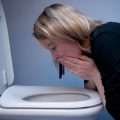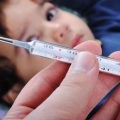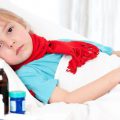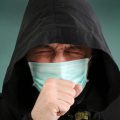Pneumococcal disease - a disease, dangerous for children, which can lead to very serious consequences for the fledgling child health. To avoid the possible consequences, children make a vaccine against the disease. The information in this article will help parents understand, why vaccination against pneumococcal infection is obligatory, how and when to vaccinate her child, what consequences this step may result in.
What is this disease?
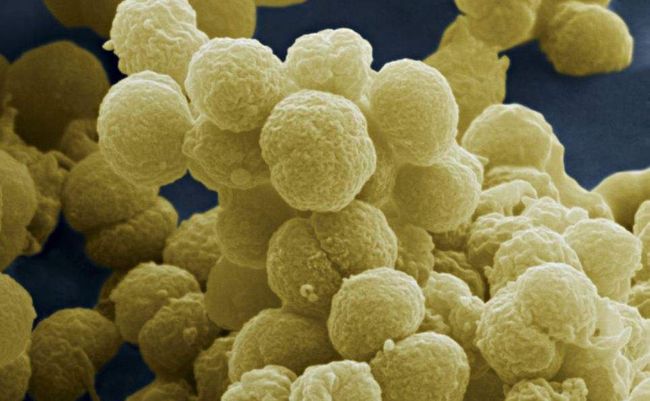
In fact, pneumococcal disease is called a group of diseases, are provoked by pneumococcus, a species of Streptococcus. This is a fairly common pathology, which affects mostly children because of poor immunity.
Attention! A characteristic feature of pneumococci is their powerful protection: despite, that microorganisms do not live outside the body for a long time, developing in the body, they are very resistant to antibiotics, are able to adapt quickly.
This complicates the fight against the causative agent, especially when it comes to the child's body.
Every year around the world from complications, provoked by pneumococcus, kills about half a million people, more 50% of this number - grudnichki and preschoolers. In Russia, at the moment of official statistics, since there is no mandatory diagnostics, but, as far as, the risk of infection is high enough baby.
Pneumococcus lives in the human body, but it manifests itself as a pathogen only in individual cases. The bacteria can cause a variety of diseases:
- ORZ.
- Otitis.
- Meningitis.
- Pleurisy.
- Sepsis.
- Pneumonia.
- Bronchitis.
- Kidney inflammation.
This dangerous disease, that the child simply can not stand. The infection manifests itself by the following features:
- fever and chills;
- cough and chest pain;
- sensitivity to light;
- orientation disorders;
- earache;
- dyspnea etc..
Treatment of the disease is difficult to occur. Despite the abundance of various drugs, for the treatment of pneumococcal difficult to immediately find the right drugs, which neutralize the pathogen. As stated above, bacteria successfully adapt to the new conditions: a third of the chosen course of treatment does not lead to a cure, which increases the risk of complications in the baby. This is especially true, if a:
- parents engaged in self-medicate the child in the past;
- for the treatment of the child unreasonably used antibiotics;
- parents canceled the appointed course of treatment and stopped to give the necessary medication.
On the basis of the possible complications and complex therapy of pneumococcal 2014 it was decided to introduce a mandatory schedule of vaccines, vaccination against pneumococcal infections. Make it necessary to 5 years old, because at this time highest infection threat, and after this age, the child has already had an infection or become a carrier of pneumococcal without any manifestations. In these cases, the antigen is produced automatically.
Consideration should be given basic details, why this infection is particularly dangerous for the fragile child's body.
- As soon as the baby comes into contact with other people, attend preschool, the risk of infection increases many times.
- In particular risk are the so-called "home" children, that most of the first years of life dealt with a limited number of persons (family). They suffer long and hard, can easily develop complications.
- Mandatory vaccine relies premature babies, as well as the, who are hypersensitive to various allergens - they are easy to pick up the pathogen.
- More than half of preschool children have a weakened immune system, they are referred to the "often chronically ill" group (CDB). These children ARI occur several times a year (up to 8-10 time). This is due to the deteriorating environmental situation in the country and the world.
In addition to the children's vaccine is indicated in patients immunocompromised, older people or suffering from alcohol, tobacco addiction. Should be vaccinated with severe chronic diseases and central nervous system anomalies.
types of vaccinations, vaccination schedule
Are vaccinated children and adults in the following places on the body:
- Front side thigh (Children under 2 years);
- the upper part of the shoulder (for children over);
- shoulder deltoid (most adults).
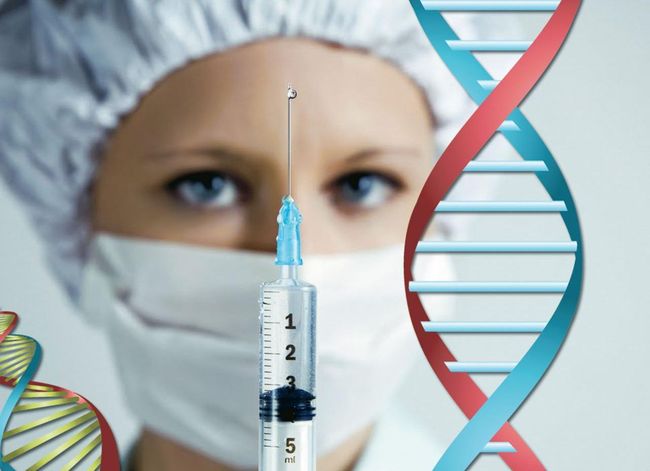
Several drugs are used the Russian market: the following foreign-made vaccines distributed worldwide. Each drug has its own peculiarities, It is a polyvalent, ie develops immunity to several diseases.
- Prevenar 7 and Prevenar 13
This vaccine is produced in the United States and is licensed in 90 countries on all continents. It leaves some of the most positive reviews.
The difference in the figures is the number of available strains of pathogens as part of. This vaccination against pneumococcal disease for children under 2 years old, adults not in use. An additional advantage - a conjugate vaccine, which effectively protects the body.
The child body preparation is administered by the following scheme:
- 3 doses administered at monthly intervals kids between the ages of two to six months;
- for kids 7-11 months make 3 injection: first with an interval of 30 days, third - on reaching the first year of life;
- the child from one to two years, graft 2 times at two-month intervals;
- children older 2 years were vaccinated once.
- Pneumo-23
Known vaccination against pneumococcal disease, produced in France, used in medicine for more than 20 years old. The vaccine is used only for children over 2 years and adults, because the kids are not susceptible to the effects of the drug.
The drug is administered once, revaccination have to do in three years.
- Sinfloriks
The vaccine contains antigens 10 most dangerous strains of pneumococcus and Haemophilus influenzae. This is a relatively new vaccine, which is available on the Russian market; made in Belgium, and gradually gaining popularity. Its advantage - the formation of the protection to Haemophilus influenzae, which can also cause pneumonia, otitis, meningitis and other pathologies. Generates an effective immune response to diphtheria and tetanus.
- Kids in the age of two months make 3 injections at monthly intervals.
- version with two doses is also available in 2 and 4 of the month.
- Children in the interval from 7 to 12 months of injections are done three times at intervals of 30 and 60 days.
- Child from 1 to 2 years vaccinated twice, with a two-month interval.
Attention! In the future can be revaccinated before the age of 5 years old, however, the drug is replaced with Pneumo-23, designed for older organisms.
Vaccination against pneumococcal disease: pros, disadvantages and contraindications
Of the advantages are the following:
- An effective immune response to a variety of hazardous and life-threatening diseases.
- Protecting your baby in the most dangerous age for a period of human development.
- Help in the formation of a strong immune system.
- Vaccination against pneumococcal infections can be done at any time of the year, together with the other mandatory vaccinations, except for vaccines against tuberculosis (BCG).
- Rarely occur side reactions, there are practically no contraindications.
For vaccination against pneumococcal disease is a famous pediatrician Eugene Komorowski. In his opinion, procedure of introducing strains into the child's body to be safe, and the vaccine itself will help prevent many dangerous diseases.
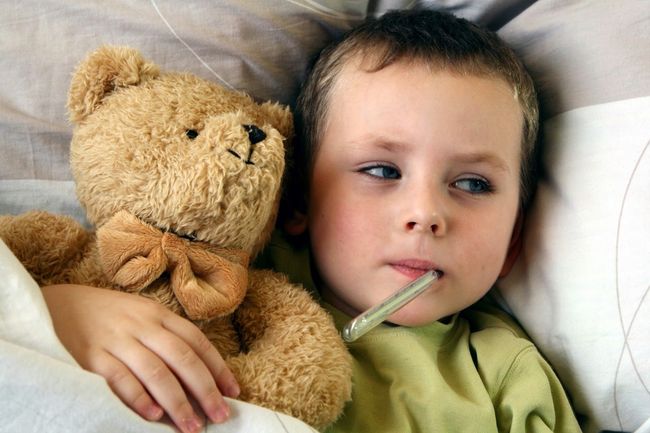
disadvantages of drugs:
- In some cases, components of the vaccines can cause an allergic reaction in a child, up to the most severe. This happens very rarely.
- Children with weak immune systems adapt poorly to vaccination action, likely adverse reactions.
You need to choose a medicine, which will help to develop a very strong defense. Not all vaccines contain all serotypes of a pathogen; previously this issue should be discussed with your pediatrician.
Contraindications to vaccination bit:
- intolerance to the drug;
- the presence of disease in the acute phase or exacerbation of chronic disease;
- elevated temperature.
Attention! If your child had a blood transfusion, instill it can only be through 4 of the month.
Reaction to the vaccine
At first time (no more 3-4 days) the child's adaptation of the organism may occur following features:
- It appears at the injection site induration and erythema, touching it can produce unpleasant sensations;
- sluggish behavior of the child, whining;
- body weakness observed;
- a child may refuse food or a little there;
- diarrhea;
- heat, chills;
- a slight increase in the lymph nodes;
- hives.
All of these are normal reactions to the vaccine, that you just need to wait. but, all this occurs infrequently - at 5% vaccinated.
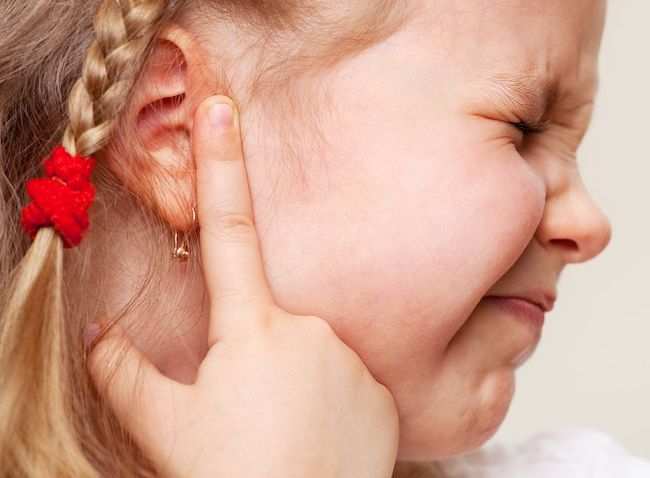
Complications often arise due to non-compliance with contraindications; can manifest:
- a severe allergic reaction (angioedema);
- abscess at the injection site;
- a significant increase in temperature until the appearance of seizures in a child;
- serious deterioration of health, and the need for hospitalization.
What to do after the vaccination?
To minimize possible complications, or the collapse of the child's condition, parents before vaccination is recommended:
- Do not change the usual child's diet, not to add new products in the power of his child, not to provoke an allergic reaction.
- If there is a need, child the day before injection to take antihistamines or drugs to reduce fever. the cause of heat in order to avoid complications is recommended to eliminate.
After vaccination against pneumococcal infection should be:
- Stay for 15-20 minutes in a medical facility, monitor the child's behavior and hospitalized with symptoms of allergic reactions, anafilakticheskogo shock.
- At the time of adaptation is not to change diet.
- When the diarrhea, vomiting give plenty of fluids.
- Monitor the temperature: indicator 38,5 It considered the threshold, if it is not exceeded, do not try to lower the temperature you need - this is a reaction of immunity.
- To reduce the too high temperature can give medicines based on paracetamol (not aspirin).
It is necessary to remember the following advice:
- bathe the child is not recommended immediately after vaccination and during the next two days;
- the injection site can not handle whatever was antiseptics or paste adhesives, watering is permitted;
- allergic shown receiving suprastina;
- antihistamines appoints Dr. based on the individual child's performance.
Vaccination against pneumococcal disease can help to save the child from a variety of disease and suffering. Carried out correctly it will not harm, but only favor. Every parent decides independently, whether to vaccinate their child, and the information in this article will help him make an informed choice.






